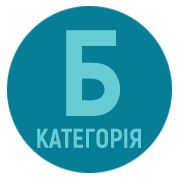TEACHING A FOREIGN LANGUAGE (ENGLISH) IN MECHANICAL SPECIALTIES, PROBLEMS AND PERSPECTIVES
DOI:
https://doi.org/10.32782/2307-1222.2024-57-33Keywords:
english language, teaching methodology, mechanical specialties, pedagogical technologies, motivation, competenciesAbstract
The article is a study of the problems and prospects of teaching a foreign language (English) in mechanical specialties. The following teaching problems have been identified: motivating students to master the English language; mastering specialized vocabulary and terminology; and developing communicative, intercultural, and sociolinguistic competencies among students. In the context of foreign language learning for students, educators face challenges related to motivation, learning specialized vocabulary and terminology, and cultivating communicative, intercultural, and sociolinguistic competencies. Addressing these issues requires the implementation of modern pedagogical technologies aimed at enhancing students' professional competencies. The analysis conducted indicates that addressing these problems is possible through the implementation of modern pedagogical technologies geared towards increasing student motivation, developing professional terminology, and fostering communicative skills. Specifically, the use of interactive methodologies, innovative approaches, and other active teaching methods can bring about positive changes in the process of foreign language learning in mechanical specialties. The research underscores the importance of integrating a foreign language into the educational process in technical specialties, contributing to the preparation of future professionals for successful competition in the international labor market. Considering these aspects is essential in the context of improving the quality of technical education and the preparation of professionals who possess not only technical but also language skills. The article outlines ways to address these issues and the prospects for implementing modern pedagogical technologies aimed at the professional development of future specialists. Additionally, the article emphasizes the prospects of using innovative teaching methodologies for English language instruction in mechanical specialties, particularly the application of interactive technologies and approaches aimed at developing linguistic and professional competencies.
References
Гладун М.А., Сабліна М.А. Сучасні онлайн-інструменти інтерактивного навчання як технологія співробітництва. Open Educational E-environment of modern university. 2018. № 4. С. 33–43.
Карпушина М., Шумило І. Використання освітніх Інтернет-платформ у навчанні іноземної мови. Вісник Національного університету «Львівська політехніка». Серія «Інформатизація вищого навчального закладу». 2018. № 903. С. 81–87.
Кудря М.М. Сучасні методики викладання іноземних мов у вищій школі України. Вища освіта у контексті інтеграції до європейського освітнього простору. 2022. № 2. С. 222–230.
Осіпчук Н.В. Проблематика навчання іноземній мові у технічних вищих навчальних закладах. Наукові записки Тернопільського національного педагогічного університету імені Володимира Гнатюка. Серія «Педагогіка». 2011. № 4. С. 204–209.
Осіпчук Н. Сучасний стан навчання іноземних мов у вітчизняних та зарубіжних вищих технічних навчальних закладах. Оновлення змісту, форм та методів навчання і виховання в закладах освіти. 2017. Вип. 16. С. 271–273.
Скуратівська М.О. Сучасні методи та технології викладання іноземних мов у вищій школі України. Науковий огляд. 2015. № 4. С. 15–17.
Чорна О.О. Особливості та практика формування іншомовної комунікативної компетентності студентів технічних спеціальностей. Викладання мов у вищих навчальних закладах освіти на сучасному етапі. Міжпредметні зв’язки. Наукові дослідження. Досвід. Пошуки. 2013. Вип. 22. С. 230–237.
Яковлева М.Л. Сучасні тенденції у навчанні іноземних мов студентів вищих навчальних закладів. Закарпатські філологічні студії. 2018. Вип 4. Т. 2. С. 36–39.
Яковлєва М.Л. Розвиток англійської мови у вищому технічному навчальному закладі. Педагогіка формування творчої особистості у вищій і загальноосвітній школах. 2020. № 70. Т. 4. С. 227–230.










